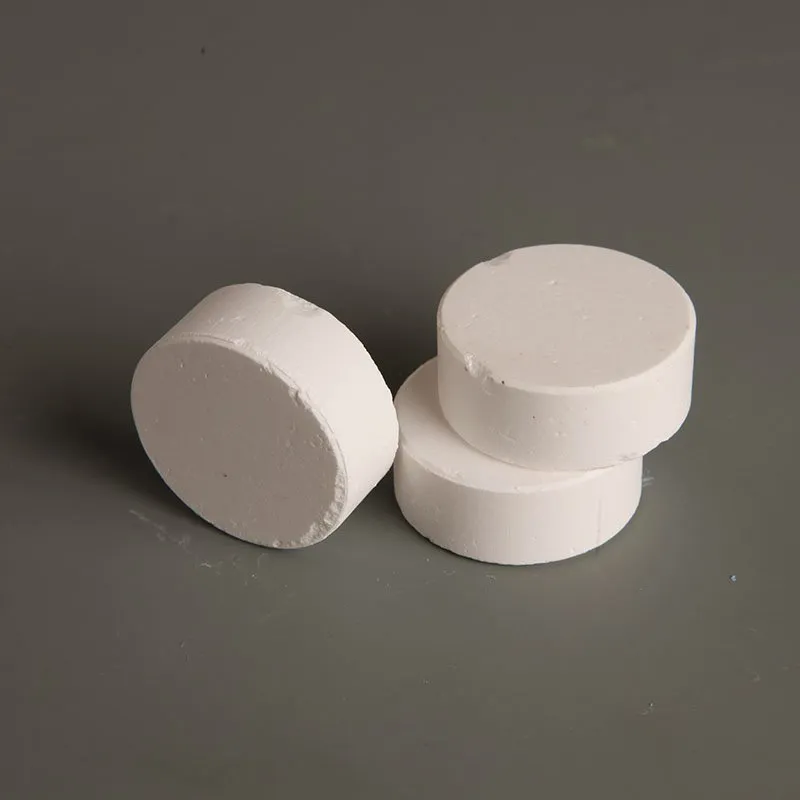



Understanding the Chemical Formula and Properties of Chlorine Dioxide
Chlorine Dioxide An Overview
Chlorine dioxide is a chemical compound with the formula ClO₂. It is a yellowish-green gas at room temperature with a potent oxidizing property, making it a valuable substance in various industrial and environmental applications. This article explores the characteristics, production, uses, and safety considerations surrounding chlorine dioxide.
Chemical Properties
Chlorine dioxide is an unstable molecule that exists primarily as a gas, although it can be dissolved in water to form a solution. Its molecular weight is approximately 67.45 g/mol, and it has a distinctive sharp odor that is often described as similar to that of chlorine. As an oxidizing agent, chlorine dioxide can react readily with other substances, allowing it to break down organic compounds and kill microorganisms effectively.
The structure of chlorine dioxide consists of one chlorine atom and two oxygen atoms, which gives it a unique reactivity profile. This reactivity is further enhanced by the presence of unpaired electrons in the molecule, lending itself to a variety of chemical reactions. Chlorine dioxide is often confused with chlorine due to its name; however, it possesses very different properties and applications.
Production Methods
Chlorine dioxide can be produced through several methods, mainly on an industrial scale. One common production method involves the reduction of sodium chlorate (NaClO₃) using a reducing agent, typically sulfuric acid (H₂SO₄) or hydrochloric acid (HCl). The reaction can be summarized as follows
\[ \text{2NaClO}_3 + \text{4HCl} \rightarrow \text{ClO}_2 + \text{2NaCl} + \text{2H}_2\text{O} \]
Other methods include the oxidation of chlorine or the reaction of chlorine with alkali solutions. Each method has its advantages and disadvantages concerning efficiency, cost, and environmental impact.
Applications
chemical formula chlorine dioxide

Chlorine dioxide has a wide range of applications, primarily in the fields of water treatment, disinfection, and bleaching. One of its most significant uses is in municipal water systems, where it acts as a disinfectant to kill bacteria, viruses, and other pathogens. Chlorine dioxide is effective at lower concentrations than elemental chlorine, making it a preferred choice in many situations.
In addition to water treatment, chlorine dioxide is a powerful bleaching agent. It is used in the paper and pulp industry to whiten and brighten products while being more environmentally friendly than traditional chlorine bleaching methods. Its ability to degrade organic matter also makes it useful in the food industry for cleaning equipment and surfaces.
Chlorine dioxide has a role in various industrial processes, including the production of certain chemicals and the oxidation of specific organic compounds. Its use can help enhance yields, purify products, and eliminate unwanted by-products.
Safety Considerations
While chlorine dioxide offers numerous benefits, it is essential to handle it with care due to its reactive and potentially hazardous nature. Exposure to high concentrations of chlorine dioxide can cause respiratory distress, skin irritation, and other adverse health effects. Therefore, appropriate safety measures, including protective equipment and adequate ventilation, must be in place during handling.
Furthermore, chlorine dioxide should not be confused with chlorine gas, which is toxic and corrosive. It is critical to understand the differences between the two compounds to ensure safe usage.
Conclusion
Chlorine dioxide (ClO₂) is a versatile chemical compound with significant applications in water treatment, disinfection, and industrial processes. Its strong oxidizing properties make it invaluable for killing pathogens and bleaching products efficiently. However, safety precautions must be taken into account when using this compound to mitigate any risks associated with its reactive nature.
In summary, chlorine dioxide is a powerful tool in maintaining public health and enhancing industrial processes, demonstrating the important role of chemical compounds in modern society. As we continue to explore and exploit its capabilities, a deeper understanding of its properties and safe handling practices will be essential for maximizing its benefits while minimizing risks.
-
Why Sodium Persulfate Is Everywhere NowNewsJul.07,2025
-
Why Polyacrylamide Is in High DemandNewsJul.07,2025
-
Understanding Paint Chemicals and Their ApplicationsNewsJul.07,2025
-
Smart Use Of Mining ChemicalsNewsJul.07,2025
-
Practical Uses of Potassium MonopersulfateNewsJul.07,2025
-
Agrochemicals In Real FarmingNewsJul.07,2025
-
Sodium Chlorite Hot UsesNewsJul.01,2025










